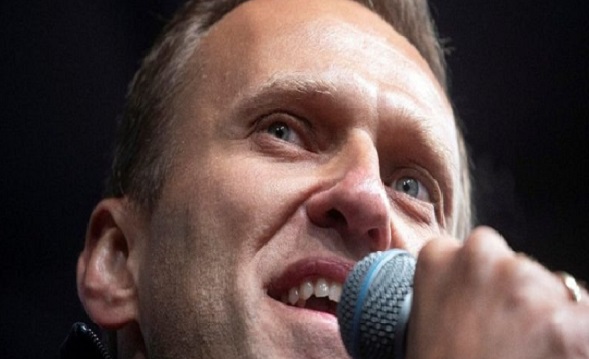
Alexei Navalny: Germany urges EU action over Novichok poisoning
A top ally of German Chancellor Angela Merkel has warned that the EU risks becoming irrelevant if it fails to act against Russia over the poisoning of opposition politician Alexei Navalny.
Mr. Norbert Röttgen said a major gas deal with Russia must now be reconsidered.
The Russian government has been widely condemned after Germany confirmed on Wednesday that Mr. Navalny had been poisoned with a Novichok nerve agent.
He is gravely ill in intensive care in Berlin's Charité hospital.
Mr. Navalny was flown to the German capital after collapsing in pain on a flight in Siberia on 20 August. His supporters believe poison was put in his tea at Tomsk airport.
Mr. Röttgen, chair of the German parliament's foreign affairs committee, demanded a tough EU response in the Navalny case. Novichok is an extremely toxic, military-grade weapon that experts say must have come from a state facility.
![]()
Mr Navalny was flown to Berlin on an emergency flight from Omsk in Siberia
"Now, again, we are brutally confronted with the reality of the Putin regime, which treats people with contempt," Mr. Röttgen told German public broadcaster ARD.
He noted that President Vladimir Putin had projected Russian power in Syria, Libya, and Belarus, and said: "The question is, are the Europeans always going to end up doing nothing? If so, then we'll become irrelevant, we won't be taken seriously."
Earlier Mrs. Merkel said Mr. Navalny was a victim of attempted murder and the world would look to Russia for answers.
She said there would be an "appropriate joint response" by the EU and Nato, describing the poisoning of Mr. Navalny as "an attack on the fundamental values and basic rights to which we are committed".
The Organisation for the Prohibition of Chemical Weapons (OPCW) said poisoning someone with a nerve agent "is considered a use of chemical weapons". It called the alleged attack "a matter of grave concern" and pledged to help any state that asks for its help.
The Kremlin has rejected the German diagnosis, saying it has not seen the German data on Mr. Navalny's condition.
Read also:
Russian opposition leader Alexei Navalny 'poisoned'
Alexei Navalny: Putin critic arrives in Germany for medical treatment
